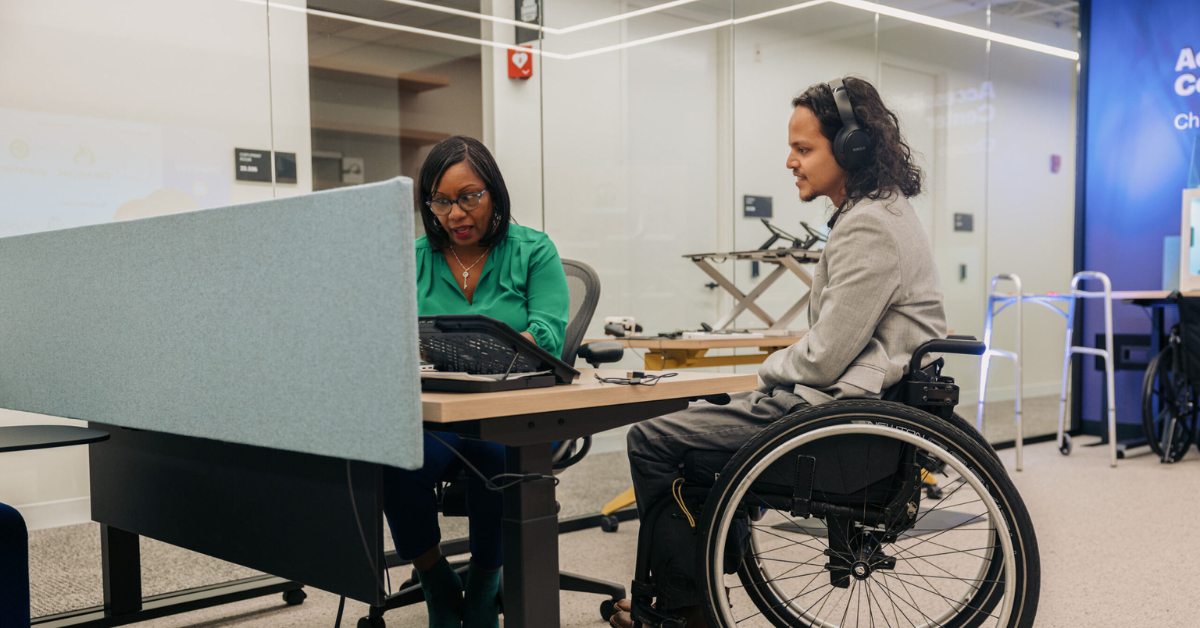Implementing Accommodations to Create a More Inclusive Workplace
Creating an inclusive workplace involves more than just meeting ADA compliance. Implementing accommodations is one critical component of creating a truly inclusive workplace. Many companies view accommodations for disabled and neurodivergent employees as costly, bureaucratic necessities to avoid fines rather than recognizing their potential benefits. Offering workplace accommodations for a large portion of a shifting workforce leads to higher employee retention, productivity, and engagement.
And employing disabled workers, notably when partnered with inclusive and accessible work environments, is good for business. Studies and statistics show that companies employing disabled people have 28% higher revenue, double the net income, and 30% higher profit margins.
Failing to create an inclusive environment results in challenges for disabled workers, including reduced pay, uncomfortable workspaces, and bias.
As an employer, there are practical accommodations you can implement to start to ensure your workplace is accessible and comfortable for your disabled workers. And these accommodations don’t have to be outlandishly expensive. Even free accommodations can deliver huge ROI. Below are two free and two cost-effective solutions.
Free & cost-effective accommodations your organization can implement now:
- Removing Physical Barriers: For many disabled people–particularly those who use wheelchairs, struggle with mobility, have depth perception issues, or are blind/visually impaired–having unnecessary clutter around the office is a huge hassle and can potentially be dangerous. By removing physical barriers (like pot plants, desks that are too close together, and poorly positioned side tables), you create ease of access for people with disabilities immediately.
- Offering Flexible, Remote Work Schedules: For many disabled people, having flexible working hours or working from home can provide a considerable advantage. If they are neurodivergent, their home may be where they are able to be most productive. For others, it could be because they require physical therapy in the middle of the day.
- Braille Keyboards ($300): Make computer work accessible for blind and visually impaired individuals, opening up a talent pool of 13 million people in the USA.
- Noise Canceling Headphones ($100 to $300): Help neurodiverse and autistic employees work more productively by minimizing distractions in a noisy environment. Often, autistic people struggle with auditory sensitivity, and a pair of these headphones can make operating outside of their own space a lot more bearable.
Additionally, consider leveraging Joshin, a personalized benefit for employees who are disabled or neurodivergent themselves, or caregiving for a loved one who has a disability. Joshin offers expert coaching, care navigation, and on-demand resources. We also support people leaders and teams to become educated on disability and inclusion in the workplace. From providing care and guidance to individuals and families with disabilities to educating teams about disability inclusion, we help create a workplace where everyone feels included.
Creating an inclusive workplace doesn’t have to be complicated or expensive. By implementing these accommodations, your organization can contribute to a more accessible and supportive environment for everyone. If you want to learn more about how Joshin can support your organization, please request a demo here.
image credit: Disability:IN Stock Photography
